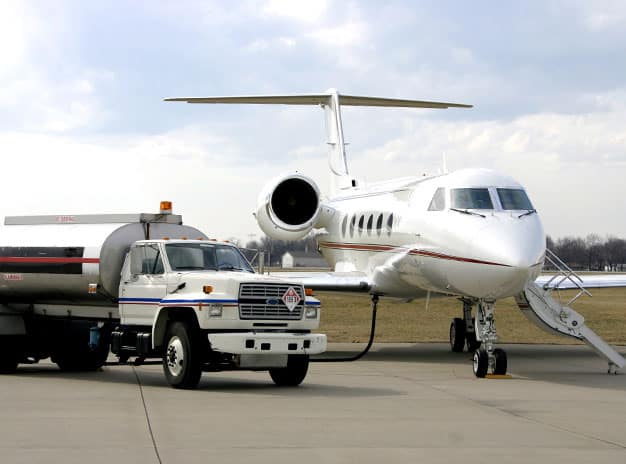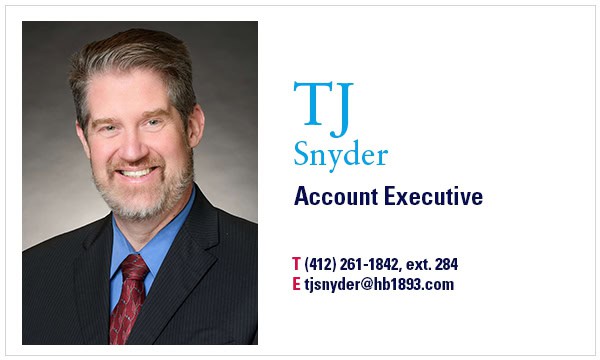by Jared Sadowski, Vice President, Aviation Practice Leader and Brandon Mohr, Claims In-House Counsel
Fixed-base operators (FBOs) offer many important services for aircraft, including crew lounges, hangar storage, maintenance and repair, and refueling at airports across the United States. FBOs use fuel/tank farms with storage tanks and pumps on their property for fueling operations. The tanks store and dispense aviation and ground fuels. They contract with suppliers who deliver fuel to refill the tanks regularly. Airports and FBOs must follow the guidance of local, state & federal regulatory agencies and planning, environmental, and fire protection organizations regarding fuel farm inspection and maintenance requirements. Even when the correct protocols are followed, however, accidents can still occur. For example, what happens if fuel from a fuel farm tank leaks and results in environmental contamination?
Pollution liability insurance protects policyholders from the risks of working with pollutants that can damage the environment and cause adverse health effects. FBOs may believe they already have coverage for a fuel spill accident through the contract with their fueling supplier, but this is not always the case. A gap in insurance coverage exposes FBOs to significant losses if the tanks on their fuel farm leak or spill fuel. In addition, pollution claims often include costs and expenses from legal defense fees, cleanup efforts, property damage, and medical care, meaning that just one claim can quickly become very costly. Site-specific pollution insurance provides valuable first- and third-party coverage that protects FBOs from the potentially devastating financial consequences that could result from a pollution-related claim.
Who Has Pollution Coverage?
Many types of businesses handle pollutants and carry pollution liability coverage. Common types of pollution coverage include contractor, products, premises or site-specific, and transportation pollution liability insurance. From trash disposal to household cleaning chemicals, many materials can have harmful effects if mishandled or released into the environment. Almost all traditional commercial general liability (CGL) policies include exclusions that deny coverage for pollution-related claims due to their high costs. Businesses with even small pollution risk exposure need to consider what would happen in the case of a spill and how to obtain coverage. Often, this is achieved through a stand-alone policy or an endorsement.
In the aviation industry, companies can get pollution coverage through airport insurance or stand-alone policies. Airport general liability policies (GL) are built differently than traditional CGL insurance and generally include broader coverages. For example, refueling aircraft is a common activity at an airport. Therefore, if a spill occurs while an aircraft is refueling on the airport premises, the airport has site-specific pollution coverage for that incident on its property.
Fuel suppliers carry separate pollution insurance for incidents that may occur while they are transporting and filling tanks on a fuel farm. For example, suppose fuel is released after a collision with a tanker truck or due to errors in the filling procedures. In that case, the fuel supplier has transportation pollution liability coverage for damages and associated cleanup costs. However, the supplier transfers any risk back to the FBO for any incidents occurring after the tanks have been filled. Take a look at some sample language that is typical in FBO fuel supply agreements:
“Fuel delivery shall be into tanks designated by the customer. This designation shall be construed as a warranty that the designated tanks and containment areas have been inspected and approved by the appropriate regulatory agencies. Customer shall bear all responsibility of spillage or contamination of the fuel after it leaves the end of any properly operating hose provided by the company.”
Although it is the FBO’s responsibility to maintain their fuel farm’s tanks and to handle leaks and spills, most FBOs do not carry pollution liability insurance. However, airports and fuel suppliers both carry pollution insurance that covers their risks during fueling operations, so it makes sense that FBOs should carry insurance to cover the risks associated with storing fuel.
Fuel Farm Risks
With the pollution risk explicitly falling under the FBO for a faulty tank or any other incident on the fuel farm, it is clear that FBOs should consider pollution liability coverage. The fuel storage system could leak if a fuel farm has below-ground or above-ground tanks. In the worst-case scenario, a slow leak could remain undiscovered for years. If it contaminates the groundwater, investigators could eventually determine the source of the leak and assign fault to the FBO.
Pollution Liability Insurance
Any of these scenarios could result in massive costs for an FBO if they do not have insurance with pollution coverage. The good news is that pollution liability insurance provides coverage for bodily injury, property damage, legal defense against lawsuits, and cleanup costs associated with contamination. FBOs with fuel farms should look into site-specific policies which can be customized to cover property, buildings, or specific risks such as fuel tanks. Policies also differ in the types of incidents they cover, such as sudden and accidental releases or gradual releases, and what substances are considered pollutants under the policy. FBOs should put pollution policies in place as soon as possible to establish the continuation of coverage.
Fuel farms have a significant uncovered risk due to the pollutants they store and the lack of coverage under airports’ and fuel suppliers’ policies. A simple pollution liability policy can prevent catastrophic losses in the event of just one pollution-related claim, from lawsuits to the medical care of affected individuals. At Henderson Brothers, our team is experienced in aviation insurance and pollution liability. We can help FBOs evaluate pollution coverage options and choose a policy that fits their needs. So don’t wait until it’s too late – talk to one of our experts today.
Please note that the information contained in this posting is designed to provide general awareness in regard to the subject matter covered. It is not provided as legal, medical, or tax advice, nor is it intended to address all concerns in your workplace or for public health. No representation is made as to the sufficiency for your specific company’s needs. This post should be reviewed by your legal counsel or tax consultant before use.




